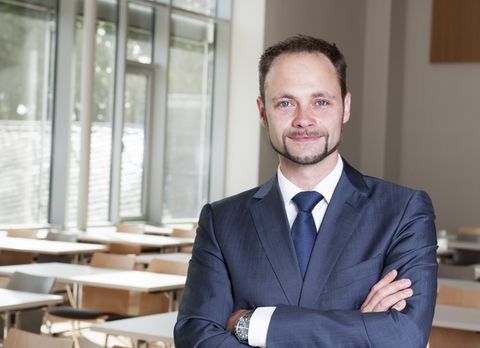Note: We are currently not accepting any new students in this study programme.

The "Bachelor of Science - Industrial Engineering Electrical Engineering" degree programme prepares for a professional field of activity with economic science reference and technical skills. There is a choice of two focal points: economics and electrical engineering. Two thirds of all courses originate from the chosen field, one third from the other field. In the basic course, the electrical engineering, business management and mathematical basics necessary for a successful course of study are developed. Key qualifications such as teamwork, presentation techniques and soft skills are also trained. In the subsequent in-depth study, you decide, based on your chosen elective subjects, for a specialization within your focus.
The practical project in the seventh semester ideally enables a smooth transition from university to a company of different industries and sizes. On the other hand, the theoretical scientific content of the study program provides the necessary entry qualification for a subsequent master’s course at a university.
Industrial engineers form the interface between technical and economic requirements and bring both together. Graduates of the industrial engineering electrical engineering study program are therefore sought-after specialists on the job market. Due to their interdisciplinarity and versatility
they are almost universally applicable and are needed in many industries and all sizes of companies. The course thus offers the best prerequisites for an interesting and successful professional future.
The degree programme has a standard period of study of seven semesters. There is a choice of two focal points: economics and electrical engineering. Two thirds of all courses originate from the chosen field, one third from the other field. The basic course comprises the first three semesters. This is where the electrical engineering, business management and mathematical-scientific fundamentals necessary for a successful study are developed.
In the subsequent specialization course (4th to 6th semester), the students decide on a specialization within their focus. The bachelor thesis and the project in the seventh semester complete the degree programme. This semester also offers the opportunity to attend a foreign university.
After successfully completing the course, the university of applied sciences awards the university degree "Bachelor of Science" and entitles you to pursue further master's studies.
Enrollment takes place in the winter semester via the online portal of the Trier University of Applied Sciences.
If you have any general questions about studying at the Business School, please contact our departmental student advisory service.
The study service at Trier University of Applied Sciences answers general questions about application, admission and enrollment.

You are leaving the official website of Trier University of Applied Sciences